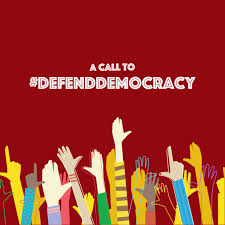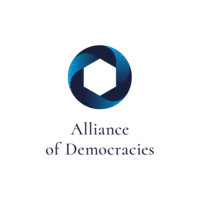 A new set of assumptions should underpin U.S. foreign policy. Contrary to the optimistic predictions made in the wake of the Soviet Union’s collapse, widespread political liberalization and the growth of transnational organizations have not tempered rivalries among countries, argues Nadia Schadlow, a Senior Fellow at the Hudson Institute and a Visiting Fellow at the Hoover Institution.
A new set of assumptions should underpin U.S. foreign policy. Contrary to the optimistic predictions made in the wake of the Soviet Union’s collapse, widespread political liberalization and the growth of transnational organizations have not tempered rivalries among countries, argues Nadia Schadlow, a Senior Fellow at the Hudson Institute and a Visiting Fellow at the Hoover Institution.
Likewise, globalization and economic interdependence have not been unalloyed goods; often, they have generated unanticipated inequalities and vulnerabilities. And although the proliferation of digital technologies has increased productivity and brought other benefits, it has also eroded the U.S. military’s advantages and posed challenges to democratic societies, she writes for Foreign Affairs:
As the digital revolution began, policymakers and business leaders were optimistic that these technologies would accelerate the spread of liberal democratic values—that “the age of information can become the age of liberation,” as President George H. W. Bush put it in 1991. A few years later, President Bill} Clinton predicted that “liberty [would] spread by cell phone and cable modem.”
Over time, however, it has become clear that the same technologies that connect and empower people can also imperil freedom and openness and limit the right to be left alone—all elements of a flourishing democracy.
 That view {that global governance threats could best be managed by international institutions} presumed that since other countries were progressing inexorably toward liberal democracy, they would share many of Washington’s goals and would play by Washington’s rules. That belief tended to minimize the importance of national sovereignty and the fact that countries differ in how they organize their own communities. Even among democracies, there exists a high degree of variation when it comes to cultural, institutional, and political values, adds Schadlow, former U.S. Deputy National Security Adviser for Strategy and a National Endowment for Democracy (NED) board member:
That view {that global governance threats could best be managed by international institutions} presumed that since other countries were progressing inexorably toward liberal democracy, they would share many of Washington’s goals and would play by Washington’s rules. That belief tended to minimize the importance of national sovereignty and the fact that countries differ in how they organize their own communities. Even among democracies, there exists a high degree of variation when it comes to cultural, institutional, and political values, adds Schadlow, former U.S. Deputy National Security Adviser for Strategy and a National Endowment for Democracy (NED) board member:
Reconsidering global governance does not require rejecting liberal principles or abandoning an order based on them. But because only a handful of countries are committed to those principles, the goal should be to foster what the scholar Paul Miller has described as a “smaller, deeper liberal order” of industrialized democracies that would defend liberal values and serve strategic and economic purposes. The focus might be on creating mission-driven coalitions that could construct redundant supply chains, fund research in emerging technologies, promote fair and reciprocal trade, and cooperate on security issues.
In a world of great-power competition, economic inequality, and dazzling technological capabilities, where ideologies as well as pathogens spread with viral ferocity, the stakes are too high and the consequences too dire to simply stick with what worked in the past and hope for the best, Schadlow concludes. RTWT
 But the unipolar moment, with America as the sole indispensable power, is over, argues Carnegie analyst David Aaron Miller. So, too, is the notion that democracies alone are the key players on the chess board, who can and will change the political orders of powerful countries that see democracy as an existential threat to regime survival. And any strategy for taking on the world’s most complicated challenges requires a recognition of this shift, he contends:
But the unipolar moment, with America as the sole indispensable power, is over, argues Carnegie analyst David Aaron Miller. So, too, is the notion that democracies alone are the key players on the chess board, who can and will change the political orders of powerful countries that see democracy as an existential threat to regime survival. And any strategy for taking on the world’s most complicated challenges requires a recognition of this shift, he contends:
As coalitions such as the Group of Seven and NATO have demonstrated, democratic alliances have appeal and value. Democracies are best equipped to provide security, prosperity and protection of individual rights. But that doesn’t mean that shared values guarantee an inevitable alignment of interests, or that the world’s democracies are begging to be led by the United States. ….Geography, political culture, security, history and economics play key roles, too, in producing conflicting interests in the democratic camp. History is replete with examples of discord among democracies….RTWT







